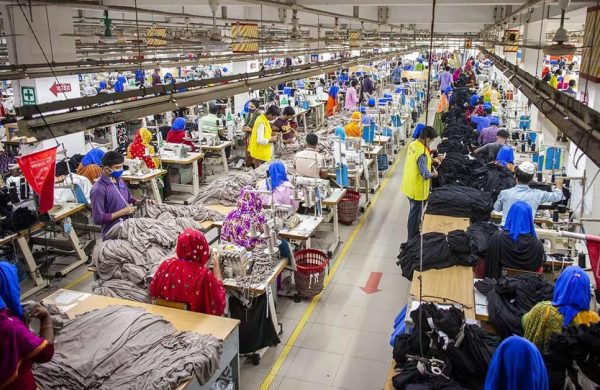Over 500 industrial units on the brink of collapse
- Update Time : Monday, August 18, 2025

Staff Correspondent:
Over 500 industrial factories in Bangladesh have either shut down or become defunct over the past year due to indecision from Bangladesh Bank and sluggish loan rescheduling processes. Although commercial banks have agreed to restructure loans for struggling industries and formally submitted proposals to the central bank, little to no assistance has reached entrepreneurs—many report receiving active non-cooperation instead.
Despite holding direct meetings with the Governor, several business owners claim no tangible outcome has been achieved. As a result, over 500 factories now face imminent ruin.
The delay in loan rescheduling—especially for institutions that became defaulters due to volatile economic conditions—has led to a severe capital crisis. Many units have already ceased operations due to a cash crunch, while others are teetering on the edge, impacting thousands of jobs.
At present, Bangladesh Bank no longer directly approves or rejects rescheduling applications. Instead, individual banks handle them. However, in January 2025, the central bank formed a five-member committee to assess loan rescheduling proposals involving defaults of over Tk50 crore.
Since then, around 1,300 companies—primarily from export-oriented sectors such as textiles, garments, and leather—have applied. Yet, only 280 applications have been processed so far.
Business leaders argue that the sluggish pace has severely disrupted cash flow, stifling production, triggering layoffs, and causing backlogs in payments to suppliers—ultimately weakening the productive foundation of the economy.
President of the Bangladesh Garment Manufacturers and Exporters Association (BGMEA), Mahmud Hasan Khan Babu, said, “With a single committee handling all applications, the process has become painfully slow. Only three to four cases are reviewed per session. At this rate, resolving all pending applications could take up to five years.”
In a meeting with Bangladesh Bank on 10 July, BGMEA requested the formation of additional committees and urged the inclusion of stakeholders in the process.
Selim Raihan, Executive Director of the South Asian Network on Economic Modelling (SANEM), stated that many businesses have reported inadequate support from the central bank. “The prolonged delays may force many firms to shut down entirely,” he warned. Timely assistance is essential for genuine borrowers affected by systemic disruptions, he added.
Central bank officials admitted that in the past, rescheduling approvals were often politically influenced, which is now creating challenges for deserving borrowers under the current crisis.
Bangladesh Bank spokesperson and Executive Director Arif Hossain Khan stated: “The committee has been formed specifically to revive genuinely affected enterprises. Due to the volume and complexity of cases, the process is taking time. However, we are working to expedite matters and ensure timely relief for eligible applicants.”
According to data from factory inspection agencies, industrial police, and other sources, over 500 factories have been shut down or become unviable in Savar, Gazipur, Chattogram, Narayanganj, and Narsingdi over the past year. These closures have left 119,842 workers unemployed—many of whom have returned to their villages in despair after failing to secure new employment.
Most of the affected factories belong to the ready-made garments, knitwear, and textile sectors. Factory owners cite a range of challenges beyond slow loan rescheduling, including high interest rates, labour unrest, problems with letters of credit (LC) for raw material imports, persistent gas shortages and rising gas prices, unreliable power supply, and continuous increases in worker wages.
These challenges have left many businesses unable to compete, forcing closure.
Meanwhile, the slow pace of rescheduling has also contributed to a dramatic rise in non-performing loans (NPLs). According to the latest figures from Bangladesh Bank, as of June 2025, NPLs in the banking sector stood at Tk530,428 crore—nearly 27% of total disbursed loans. In other words, over one in every four taka lent is now in default.
Just three months earlier, in March 2025, the NPL figure was Tk420,334 crore with a 24.13% default rate—an increase of over Tk110,000 crore in just one quarter.
In comparison, in June 2024, total NPLs were Tk211,391 crore. Thus, over the past year, non-performing loans have surged by Tk319,037 crore—a sharp and alarming escalation in financial distress across the banking sector.

















